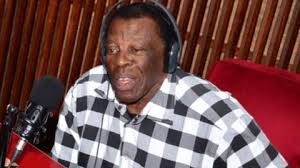By Dennis Weche
For those of us who grew up in the late 90s and early 2000s, radio was more than just a background sound. It was a way of life, a source of information, entertainment, and connection to the world. Long before social media and the internet became mainstream, radio was the most trusted medium, shaping public opinion and bringing people together. Among the many stations that dominated Kenya’s airwaves, Kenya Broadcasting Corporation, popularly known as KBC, stood out. Its Swahili service, Idhaa ya Taifa, which later rebranded to KBC Radio Taifa, was a favorite in many households.
I recall back then, radios were rare, but my dad had a wooden radio which could only tune to KBC Radio. The station had a variety of programs that kept us informed and entertained. We would gather around the radio in the evening, eagerly listening to news updates, music, and discussions that brought people together. It was through that wooden radio that I first heard the voice of Leonard Mambo Mbotela, a voice that would leave a lasting impression on me and many others.
One of the greatest voices to ever grace Kenya’s airwaves, Mbotela had a rich and deep voice that was instantly recognizable. His mastery of the Swahili language was unmatched, and his ability to capture the attention of listeners made him a legend in the world of broadcasting.
Born in 1940 in Mombasa, Mbotela grew up in a Kenya that was still under British colonial rule. From a young age, he had a passion for storytelling and public speaking. His eloquence and confidence made him stand out, and it was only a matter of time before he found himself in the world of media. His big break came in 1964 when he joined the Voice of Kenya, which later became the Kenya Broadcasting Corporation. At a time when broadcasting was still heavily influenced by colonial traditions, Mbotela brought a fresh, uniquely African perspective to the airwaves. His style of delivery was engaging, charismatic, and full of life, quickly earning him a place among Kenya’s top radio personalities.
Mbotela was part of Kenya’s first generation of journalists, pioneers who set the foundation for the media industry as we know it today. His dedication, professionalism, and ability to connect with audiences made him a role model for many, including young journalists like me, who now work in print media. Though I do not work in broadcast journalism, I draw a lot of inspiration from him. His storytelling, discipline, and ability to bring issues to life remain unmatched, and his legacy continues to guide those of us who have chosen to follow the path of journalism.
One of his most iconic contributions to Kenyan radio was the program Je, Huu ni Ungwana? This show was not just another radio program. It was a national conversation about morality, ethics, and social responsibility. Every episode tackled real-life issues that affected society, encouraging listeners to reflect on their actions and decisions. His famous phrase, Je, huu ni ungwana?, meaning “Is this honorable?”, became a household slogan. People used it in everyday conversations, and it became a reference point for discussions on good manners, respect, and decency.
Beyond entertainment, Mbotela played a crucial role in Kenya’s political history. He was one of the few journalists who found themselves at the center of major national events. One of the most defining moments of his career came on August 1, 1982, when a group of rebellious soldiers attempted to overthrow President Daniel arap Moi’s government in a military coup. The coup plotters stormed the KBC studios and forced Mbotela to go live on air and announce that the government had been overthrown. His voice, calm yet firm, delivered the shocking news to millions of Kenyans. However, the coup was unsuccessful, and by the end of the day, government forces had regained control. This experience was a traumatic one for Mbotela, but he continued his broadcasting career with the same passion and professionalism that had made him a household name.
Over the decades, he remained a pillar in Kenya’s media industry. His career spanned more than five decades, during which he mentored many young journalists and broadcasters. His influence could be seen in the way radio and television programs evolved over the years. He had set a high standard for excellence, and his legacy became the foundation upon which many Kenyan media personalities built their careers.
Even in his later years, Mbotela remained active in the industry. His presence on radio and television was a reminder of Kenya’s rich broadcasting history. His voice, full of wisdom and authority, continued to inspire both the old and the young. He was a living legend, a symbol of an era when radio was more than just entertainment. It was a tool for education, enlightenment, and nation-building.
Sadly, today marks the end of an era. Leonard Mambo Mbotela has passed away at the age of 84. His family confirmed that he had been battling illness for some time and took his final breath this morning. His passing is a huge loss, not just to the media fraternity but to the entire nation. He was more than just a broadcaster. He was a storyteller, a mentor, and a patriot who used his voice to educate, inform, and inspire. His contributions to Kenyan media will never be forgotten.
As the country mourns his passing, we also celebrate a life well lived. Leonard Mambo Mbotela was not just a radio presenter. He was a national icon whose impact will be felt for generations to come. The countless journalists he mentored, the legendary programs he created, and the wisdom he shared with the nation will forever remain part of Kenya’s history. His famous words, Je, Huu ni Ungwana?, will continue to echo in our hearts, reminding us of the values he stood for.
Farewell, Leonard Mambo Mbotela. Your voice may be silent, but your impact will never fade. You were, and will always remain, one of the greatest broadcasters Kenya has ever known.



